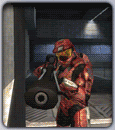Post by lx Spooner xl on Apr 7, 2005 18:53:36 GMT -8
Ilovebees.com-style game on ourcolony.net appears to reward visitors with glimpses of Microsoft's next-generation controller
Xbox 2 set to feature removable hard drive
But are these sealed units, or is the fabled xPod making a return to the rumour mill?
Microsoft's next-generation Xbox console is set to feature a removable hard drive bay, according to online reports today, which will allow users to upgrade their entry-level systems to include mass storage capabilities.
Citing a "reliable source", technology news site Engadget revealed details of the removable hard drive, claiming that the unit attaches to the top of the console "in a really slick way, almost like the hood scoop on a muscle car."
The report tallies with claims from developers working on the system, who have told GamesIndustry.biz in the past that Microsoft has disclosed that there will be a mass storage device, but that they should not rely on its presence for their games.
It's been assumed for some time that this means that Xbox 2 will be sold in at least two basic configurations - with and without a mass storage unit - and today's report seems to indicate that it will be possible to upgrade between those models by adding the hard drive.
One vital question, however, is whether this hard drive will simply be a sealed memory unit (which may actually be a hard drive, or may be a very high capacity flash drive) or if it will sport a screen and buttons, allowing it to be used as a portable media player.
Although there were no Xbox 2 announcements at last year’s E3, a few tidbits regarding the next generation hardware were revealed by an effusive J Allard. In an interview with CVG, Allard talked about the “unbelievable amount of raw computing power” that will be available in the Xbox successor and how next generation software will take advantage of it.
Particularly, Allard described a new technique called “procedural synthesis”; special programs that create realistic bricks, trees, and other environmental objects, leveraging game artists from spending long hours creating repetitive geometry. Today, we are bringing you a detailed analysis of a recent patent application made by Microsoft, which was approved on December 30th by the United States Patent and Trademark Office
Xbox 2 set to feature removable hard drive
But are these sealed units, or is the fabled xPod making a return to the rumour mill?
Microsoft's next-generation Xbox console is set to feature a removable hard drive bay, according to online reports today, which will allow users to upgrade their entry-level systems to include mass storage capabilities.
Citing a "reliable source", technology news site Engadget revealed details of the removable hard drive, claiming that the unit attaches to the top of the console "in a really slick way, almost like the hood scoop on a muscle car."
The report tallies with claims from developers working on the system, who have told GamesIndustry.biz in the past that Microsoft has disclosed that there will be a mass storage device, but that they should not rely on its presence for their games.
It's been assumed for some time that this means that Xbox 2 will be sold in at least two basic configurations - with and without a mass storage unit - and today's report seems to indicate that it will be possible to upgrade between those models by adding the hard drive.
One vital question, however, is whether this hard drive will simply be a sealed memory unit (which may actually be a hard drive, or may be a very high capacity flash drive) or if it will sport a screen and buttons, allowing it to be used as a portable media player.
Although there were no Xbox 2 announcements at last year’s E3, a few tidbits regarding the next generation hardware were revealed by an effusive J Allard. In an interview with CVG, Allard talked about the “unbelievable amount of raw computing power” that will be available in the Xbox successor and how next generation software will take advantage of it.
Particularly, Allard described a new technique called “procedural synthesis”; special programs that create realistic bricks, trees, and other environmental objects, leveraging game artists from spending long hours creating repetitive geometry. Today, we are bringing you a detailed analysis of a recent patent application made by Microsoft, which was approved on December 30th by the United States Patent and Trademark Office











